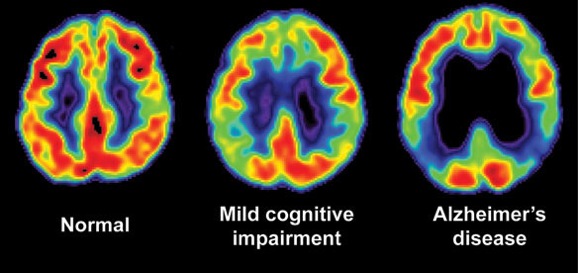A New Oral Alzheimer’s Treatment Could Eventually Put An End To The Disease
This article is more than 2 years old
 Watching someone you love struggle with Alzheimer’s disease is a terrible ordeal, like seeing them fade away before your very eyes and not being able to do a damn thing about it. Researchers have now discovered a chemical that prevents brain tissue from dying as a result of neurodegenerative disorders, like Alzheimer’s and Parkinson’s, among other afflictions. At the moment, this treatment is only applicable to mice, but it is one hell of a place to start. So promising are the new findings that this breakthrough is being lauded as a “turning point” by many in the scientific community, and provides new avenues for research.
Watching someone you love struggle with Alzheimer’s disease is a terrible ordeal, like seeing them fade away before your very eyes and not being able to do a damn thing about it. Researchers have now discovered a chemical that prevents brain tissue from dying as a result of neurodegenerative disorders, like Alzheimer’s and Parkinson’s, among other afflictions. At the moment, this treatment is only applicable to mice, but it is one hell of a place to start. So promising are the new findings that this breakthrough is being lauded as a “turning point” by many in the scientific community, and provides new avenues for research.
There are issues with this new treatment. As already mentioned, the current form will only work on mice. You may have noticed that humans and rodents have different genetic codes, so there’s that gap that will have to be bridged eventually. This is also reportedly pretty tough on a mouse pancreas, not to mention the fact that it causes diabetes, and severe weight loss. Again, large hurdles to overcome, but this new treatment shows more potential than anything that has come before. In fact, it completely shut down the brain wasting process in mice with prion disease—an affliction that functions similarly in mice as Alzheimer’s does in humans, producing bad proteins.
The subject mice, that all suffer from prion—normally fatal within 12 weeks—were given a pill that inhibits the protein kinase known as PERK. The intention was to close down the pathways that cause cognitive degeneration in the brain, and the results were astounding. The deterioration was stopped, both in preclinical cases, as well as those that had already manifested symptoms of the disease. That’s huge. Potential applications are not only preventative, but actively stop the progression of the illness once it has taken hold. This gives scientists a new mark to aim at when it comes to Alzheimer’s research.
The study concludes, “These data suggest that PERK, and other members of this pathway, may be new therapeutic targets for developing drugs against prion disease or other neurodegenerative diseases where the [unfolded protein response] has been implicated.”
The next step in the process is obviously to craft a version of this pill that will work for human patients, as well as one that hopefully doesn’t decimate our bodies along the way. Unless you want diabetes and are super pissed off at your pancreas. However, the fact that this treatment is so promising, as well as easy to administer—you just have to take a pill—is enough to make this an exciting development .
You can check out the whole study here.












